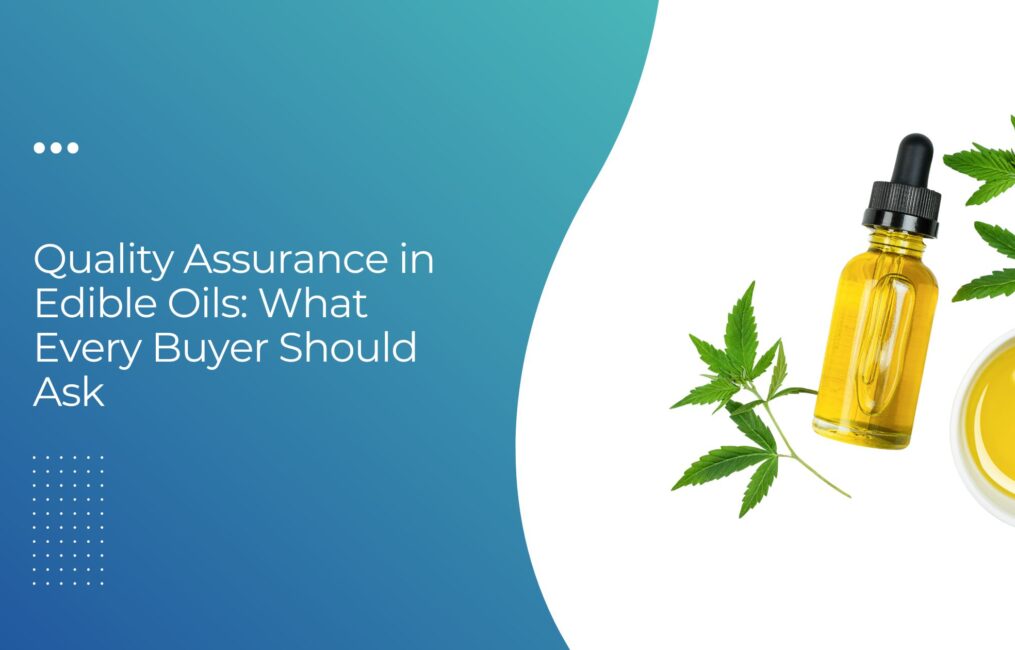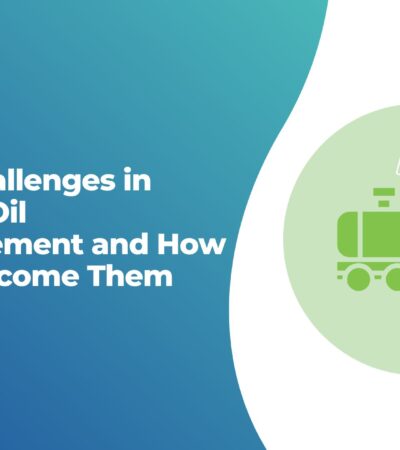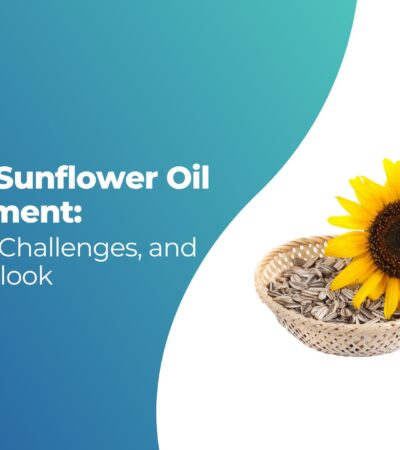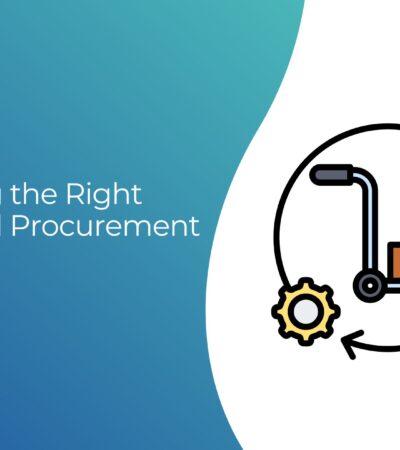Quality Assurance in Edible Oils: What Every Buyer Should Ask

Edible oils are at the heart of our kitchens, food industries, and even some non-food sectors like cosmetics and pharmaceuticals. Whether you are a household consumer or a bulk buyer, quality is something you can’t compromise on. In today’s global market, edible oils are sourced from multiple countries and suppliers. While this gives buyers more options, it also makes Edible Oil Procurement a complex process that requires careful evaluation.
But here’s the truth: not every oil that looks golden and pure in packaging is guaranteed to meet the right quality standards. Adulteration, poor refining, and weak supply chain practices can all affect the final product. This is why buyers — especially businesses that purchase in bulk — must know the right questions to ask before making sourcing decisions.
This blog is your comprehensive guide to quality assurance in edible oils. We’ll explore what buyers should check, what certifications matter, the role of sustainability, and how to avoid common procurement challenges. Along the way, we’ll also look at specific oils like Refined Sunflower Oil, Refined Soybean Oil, and Refined Corn Oil to understand what sets them apart.
Why Quality Assurance in Edible Oils Matters
Quality assurance is not just about taste or appearance — it directly impacts:
- Consumer health: Poor-quality oils can contain harmful substances, trans fats, or residues that affect long-term health.
- Brand reputation: For businesses, supplying substandard oils can damage customer trust permanently.
- Compliance: Governments impose strict safety standards. Not meeting them could mean fines, recalls, or loss of licenses.
- Supply chain stability: Quality-focused suppliers are usually more reliable in the long run.
In short, if you want consistent performance, compliance, and customer trust, ensuring oil quality should be your top priority.
What Every Buyer Should Ask: The Key Questions
When procuring edible oils, whether domestically or internationally, asking the right questions makes all the difference.
1. Is the oil refined according to global standards?
Refining removes impurities, odors, and colors while improving stability. For example:
- Refined Sunflower Oil is prized for its light flavor and high Vitamin E content.
- Refined Soybean Oil is widely used in processed foods due to its neutral taste.
- Refined Corn Oil is valued for its frying stability and cholesterol-lowering properties.
Buyers should ensure oils meet refining standards like FSSAI in India or Codex Alimentarius internationally.
2. What certifications does the supplier provide?
Trustworthy suppliers will always back their products with certifications such as:
- FSSAI (India’s Food Safety and Standards Authority)
- ISO 22000 or HACCP (food safety systems)
- Kosher / Halal certifications (depending on market requirements)
- AGMARK (for agricultural product quality)
A supplier unwilling to share these documents should raise red flags.
3. Can the supplier provide third-party lab test reports?
Independent lab tests verify purity, fatty acid composition, and absence of contaminants. Businesses should make it a routine practice to request or even commission such tests.
4. How traceable is the supply chain?
From farm to refinery, every stage should be traceable. For example, sunflower oil sourced from Ukraine should have complete documentation on cultivation, processing, and refining. Traceability helps buyers detect adulteration risks and comply with international trade rules.
5. Does the supplier follow sustainable practices?
Sustainability is not just a buzzword. Consumers are increasingly demanding responsibly sourced oils. Even refined oils like soybean, corn, and sunflower now face sustainability checks. A forward-thinking buyer should always ask:
- Are the oils sourced without deforestation?
- Does the supplier support fair trade?
- Are there eco-certifications available?
Common Quality Risks in Edible Oil Procurement
Even with regulations in place, risks still exist. Buyers should be aware of these pitfalls:
Adulteration
Mixing cheaper oils with premium ones is a common malpractice. For example, some suppliers mix low-cost palm oil with sunflower oil to cut costs. Without testing, such adulteration may go unnoticed.
Rancidity
Improper storage or transport can cause oils to oxidize and turn rancid. This affects flavor, nutritional value, and safety.
Residues and contaminants
Pesticide residues, heavy metals, or solvents from refining processes can be harmful if not eliminated properly.
Supply chain inconsistency
Some suppliers may not maintain the same quality across different batches, leading to unreliable results for businesses.
By being aware of these issues, buyers can develop a more rigorous procurement process.
Edible Oil Procurement Models: Finding the Right Fit
Procurement isn’t a one-size-fits-all process. Different businesses follow different models depending on their needs.
Direct procurement from refiners
Large buyers often source oils like Refined Soybean Oil or Refined Sunflower Oil directly from refiners. This ensures lower costs and more control but requires handling logistics.
Distributor-based procurement
Smaller businesses or restaurants often rely on distributors who break bulk into smaller lots. This model offers convenience but may cost slightly more.
Long-term contracts
Locking in prices for 6–12 months can protect against volatility. It also ensures a steady supply of high-demand oils.
Spot buying
This model works for small businesses with flexible demand, but it’s risky in volatile markets like edible oils.
For a deeper understanding, you can explore our blog on Edible Oil Procurement Challenges.
Supplier Reliability: The Heart of Quality Assurance
Even if certifications and test reports look perfect, the reliability of your supplier plays the biggest role. A trustworthy supplier will:
- Share transparent documentation.
- Offer samples for testing.
- Provide consistent quality across batches.
- Have positive industry references.
For businesses looking to identify such suppliers, our post on Choosing the Right Edible Oil Procurement Partner covers key factors to evaluate.
Practical Checklist for Buyers
Here’s a quick checklist that buyers can use while sourcing edible oils:
- Ask for certifications (FSSAI, ISO, HACCP, etc.)
- Request independent lab tests
- Check refining methods and processes
- Verify supply chain traceability
- Ensure sustainable sourcing practices
- Inspect packaging and storage conditions
- Evaluate supplier’s reputation and references
This checklist simplifies decision-making and reduces the risk of costly mistakes.
Case Studies: Quality Assurance in Action
Sometimes, the best way to understand how quality assurance works is by looking at real-world scenarios. Here are two simplified case studies that highlight common challenges and smart solutions in edible oil procurement.
Case Study 1: Ensuring Purity in Refined Sunflower Oil
A mid-sized snack manufacturer in India needed a steady supply of Refined Sunflower Oil. However, after receiving a few shipments, their quality team detected unusual flavors in the oil.
The problem: Tests showed adulteration with cheaper palm oil, which compromised product taste and could damage consumer trust.
The solution:
- The buyer switched to a supplier offering full traceability and third-party lab tests.
- They signed a 9-month contract to secure consistent supply.
- The supplier provided batch-specific certifications with every delivery.
The outcome: The manufacturer restored product quality, protected its reputation, and even marketed its use of “100% pure sunflower oil” as a selling point.
Case Study 2: Overcoming Price Volatility in Refined Soybean Oil
A food service chain in Southeast Asia depended heavily on Refined Soybean Oil for frying. However, global soybean yield drops in Brazil and the US caused prices to spike.
The problem: The sudden increase in costs threatened to shrink profit margins.
The solution:
- The chain diversified its procurement by adding Refined Corn Oil to its supply mix.
- It entered long-term contracts with two suppliers across different regions to spread risk.
- The procurement team monitored international market reports to predict future trends.
The outcome: The company stabilized costs, avoided dependency on a single oil, and continued delivering consistent quality to customers.
The Future of Quality Assurance in Edible Oils
The edible oil industry is evolving fast, and quality assurance is becoming more complex and technology-driven. Here are the key trends buyers should watch:
1. Digital Traceability
Blockchain and AI are being used to trace oils from farm to table. This ensures full transparency and reduces the chances of adulteration. Buyers can scan QR codes on batches to see sourcing details.
2. Stricter Global Regulations
Countries are tightening food safety laws. Procurement teams must stay updated on certifications required for exports and imports to avoid penalties.
3. Sustainability at the Core
More companies are demanding oils sourced with eco-friendly practices. For example, responsibly sourced Refined Sunflower Oil and soybean oil are gaining preference in global markets.
4. Shift Toward Healthier Oils
Consumers are leaning toward oils with added nutritional value. This is driving demand for oils like sunflower and corn, which are perceived as healthier compared to palm.
5. Integrated Procurement Platforms
Future procurement will rely heavily on digital platforms that combine supplier selection, price monitoring, and contract management into one system.
Conclusion
Quality assurance in edible oils is not an option — it’s a necessity. Whether you’re sourcing Refined Corn Oil, Refined Sunflower Oil, or Refined Soybean Oil, asking the right questions can protect your business from risks and help you deliver safe, consistent, and trusted products.
To summarize, here’s what every buyer should focus on:
- Certifications and lab tests for quality verification.
- Traceability to ensure transparency and compliance.
- Supplier reliability and reputation.
- Sustainability practices that align with global expectations.
- Smart procurement models to manage price volatility.
FAQs on Quality Assurance in Edible Oils
Q1. What’s the first step in ensuring quality edible oil procurement?
Start by checking supplier certifications like FSSAI, ISO, or HACCP. Then, request lab test reports to confirm purity and compliance.
Q2. How can buyers detect adulteration in oils?
The most reliable method is third-party laboratory testing. Buyers can also check fatty acid profiles to confirm oil authenticity.
Q3. Are refined oils always better than unrefined ones?
Refined oils like soybean, sunflower, and corn are safer for large-scale food production because they’re stable, free from impurities, and have a longer shelf life.
Q4. How can small businesses ensure quality while buying internationally?
Work with distributors who provide smaller lots, ask for certifications, and test samples before committing to contracts.
Q5. What role does packaging play in quality assurance?
Packaging is critical — poor packaging can lead to oxidation, leakage, or contamination during transport. Always check if oils are shipped in food-grade drums, flexitanks, or tankers.
Q6. Why is sustainability linked to quality?
Sustainable sourcing ensures oils are produced responsibly, without harming the environment. It also reflects a supplier’s commitment to ethical and transparent practices.
Q7. Which edible oils are most in demand today?
Currently, Refined Sunflower Oil, Refined Soybean Oil, and Refined Corn Oil are widely sourced for both household and industrial use due to their health benefits and versatility.





